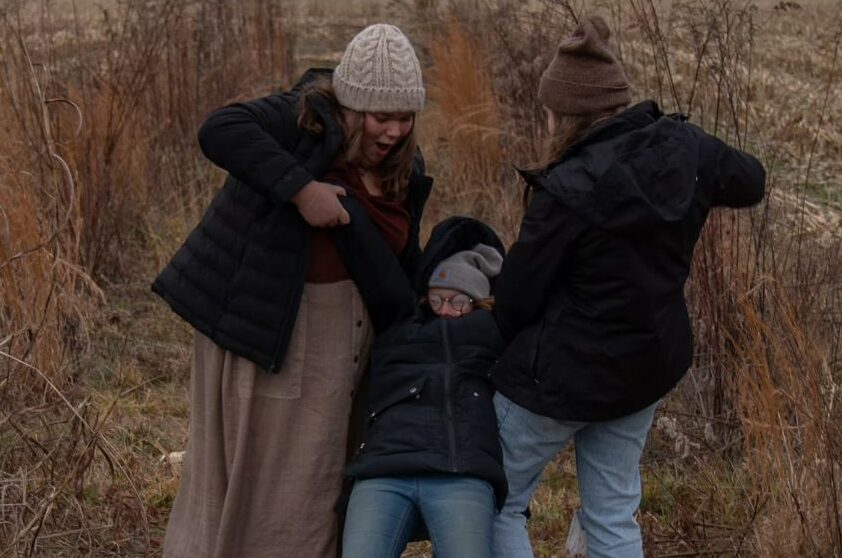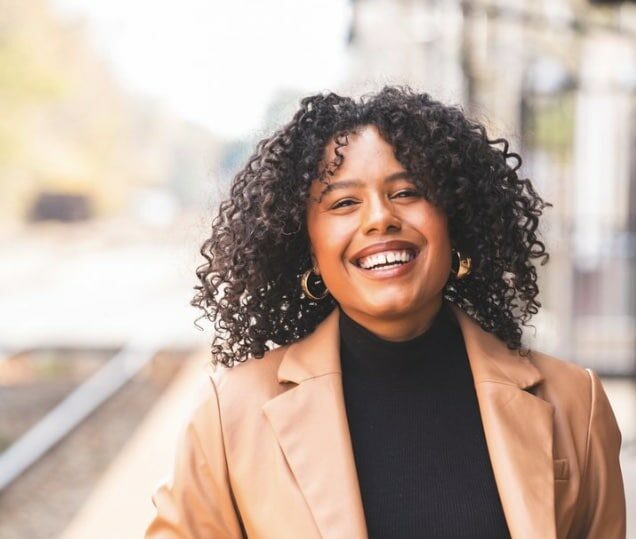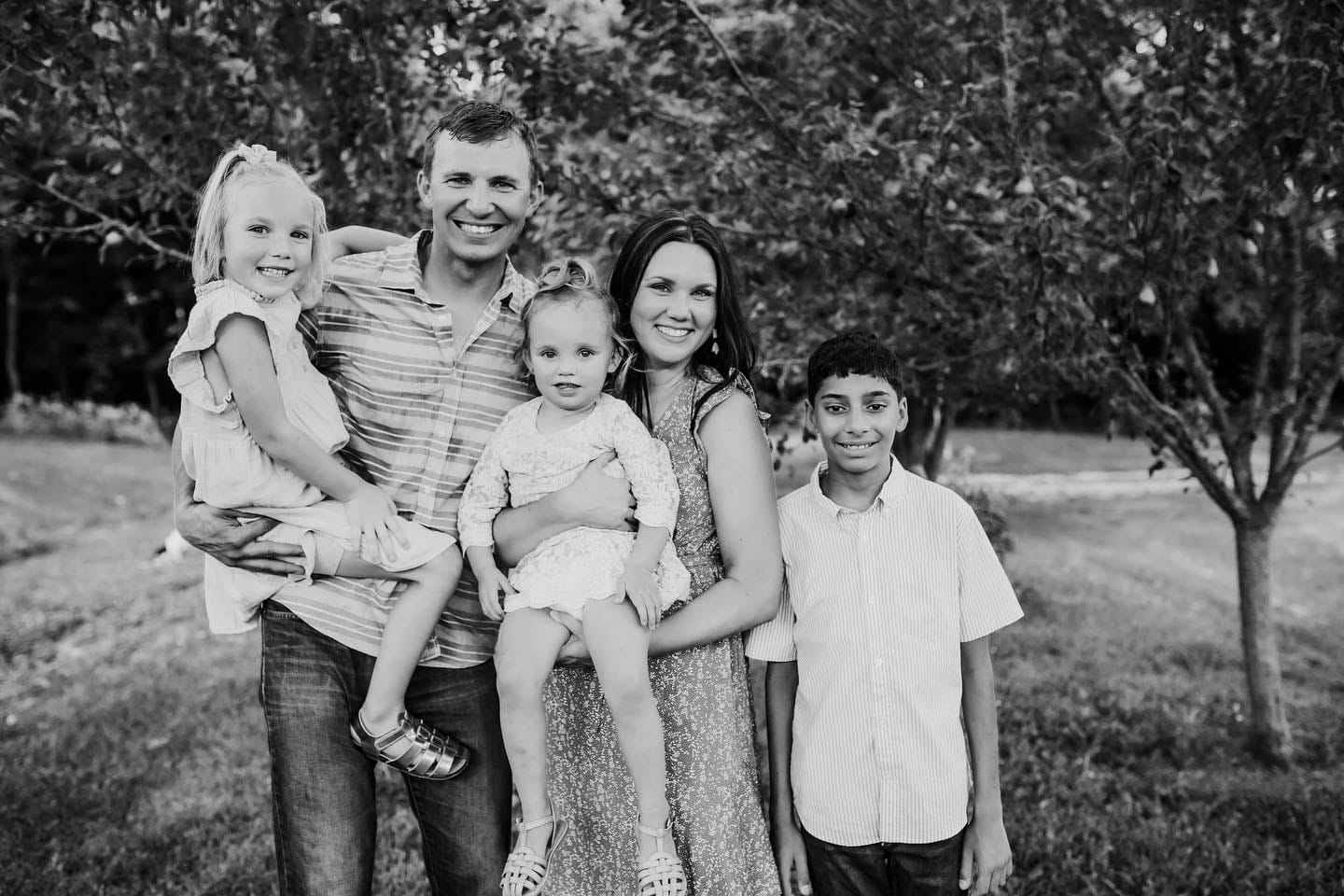The Unglamorous Reality of Anti Trafficking Work
Written by Mindy Summers
“How many girls have you rescued out of there?” he asked. “That’s not what we do” I responded.
I mean, it would make for some great marketing and fundraising, but it’s not our story. “Loud & dramatic” compels a crowd more easily than “slow & steady”. Have you been hearing a lot about sex trafficking? The news? Movie trailers? Random Facebook shares from your sweet aunt about parking lot scares & Wayfair conspiracies? It’s everywhere, right? As someone who has had my eyes, ears and heart in this work for a long while, I would like to offer up some thoughts on discerning what we are seeing.
My heart is weary of the sensationalization of real people’s trauma.
To be honest, it’s harmful. It paints a picture that distracts us from the real issues. I will say from the deepest part of me, that is a tragedy. The sensationalized stories that often get shared and perpetuated prevent real life victims of trafficking from being able to name what is happening to them, it prevents all of us from seeing it clearly. Let’s paint a true picture. Let’s tell real stories. Let’s center survivors.
So how did my passion for anti trafficking work start?
Nearly a decade ago I began to focus on and learn more about sex trafficking. I gathered some people in my community to join me. We read a lot, we went to conferences, we prayed, and we listened. We learned that 70% of all females who are trafficked are trafficked into the commercial sex industry. You know, the stuff that often looks legal: strip clubs, pornography, escorting, and prostitution. Our hearts began to ache as we learned just how evil exploitation is, that it goes far beyond what you would imagine. We also learned that nearly 90% of women in the sex industry report being sexually abused as children. As we learned, our eyes began to open to local needs that often go unnoticed. Our ears began to hear the cries of everyday, ordinary people who experience the horror of trafficking, and the stories of vulnerability that start in childhood and extend into adulthood. We couldn’t ignore the trauma, the repeated pattern of the paths that lead toward exploitation.
We began visiting with women who work locally in the sex industry. We’ve been going monthly for almost a decade. Each time we go we bring gifts, baked goods & friendship. We hold no agendas, no expectations or judgements. We just sit. We listen, offer presence & resources to anyone who may have a need. We’ve wrapped thousands of gifts, entered industry doors over 100 times.
Over the years we’ve been able to have community conversations about what trafficking really looks like. We’ve been able to educate coalitions, youth groups, church groups and moms groups about the realities of trafficking. It’s often drastically different from the Hollywood portrayals and sensationalized versions our minds tend to lean toward.
According to the Department of Justice sex trafficking is: “the recruitment, harboring, transportation, provision, obtaining, patronizing, or soliciting of a person for the purpose of a commercial sex act in which a commercial sex act is induced by force, fraud, or coercion, or in which the person induced to perform such act has not attained 18 years of age.”…and it’s happening in our own neighborhoods. It’s not an issue that only exists far off in other countries. It’s happening to the woman you bump into at the market, to the teenager who looks free and has a cell phone at the coffee shop, to the child playing on the playground.
I won’t pretend to be an expert. I am a mother of four, a wife, a friend and neighbor. I am a community advocate and the leader of an effort to meet victims where they are, whatever their story may be.
I’ve sat on anti-trafficking boards, spoken with audiences & helped develop plans to lower the insanely high sexual assault rates in our communities. I have sat under the wisdom and teaching of survivors, experts and trained professionals for a decade, and my heart has grown to see the issue so clearly. Now, my heart is to be present with people in their place & help others become aware of the realities of human trafficking.
I care about people, about the margins of society, about the outcast, the suffering & the vulnerable. My nightstand is full of books on every issue in that genre, but there is no greater teacher than the survivors who live this story. They have been my teachers, and I am forever thankful. Their work, books, words, stories, and tears have brought such purpose to my life.
How is trafficking so misrepresented?
One of the toughest things about this work is when people misunderstand it. Hollywood specializes in misinforming the public on human trafficking.
It’s truly grievous. So many have visuals of children being snatched off the streets, sold overseas & bound with chains. Occasionally, that does happen. Evil knows no bounds, and situations like this occur, but the truth is these stories are incredibly rare, they are the exception— not the rule. When we choose to focus on and share ONLY these types of stories we can actually do more harm than good. It would be a better use of our time and efforts to show how trafficking actually works the vast majority of the time. You see, we don’t need a strong white guy to be the hero, to bust down doors and take down the bad guys, we need ordinary people to learn the signs of vulnerability & pay attention.
You can forgo the “glamorous” anti trafficking narrative. It’s false. Does that feel uncomfortable to you? Then please, lean in. Joash Thomas with the International Justice Mission says, “Most people would be shocked to learn how unglamorous and mundane effective anti trafficking work actually is.” And in my experience, I’ve found that to be true. But, unglamorous as it may be my friends, you and I have the opportunity to combat trafficking right where we are. Together, the fight against trafficking WILL be effective, just, and promote more safety and goodness in this world.
Feeling a little overwhelmed? I get it. Here are some great places to start:
-Know that a huge percent of trafficking happens inside the commercial sex industry. What does the commercial sex industry look like in your city? How can you support women who work there without judgment or expectation?
-Educate children on body safety, not keeping “secrets”, grooming and the power of the word “NO”. Most children are trafficked by people they know and people that their family trusts. Guard the young hearts & minds around you. Be a SAFE adult. KNOW who is with your children.
-Resist pornography and help educate people to understand that so many women do not do this by choice (let alone the violence, assault & sexism it promotes in our communities).
-Mentor young people. Show up. Love them well.
-Children in foster care are vulnerable to many forms of exploitation. Invest in foster families and their children.
-Support local sexual abuse response teams. Ask them what they need. Give them your support.
-Under-resourced communities experience many vulnerabilities. Don’t stay in your “safe” community, step into vulnerable communities and invest, invest, invest.
-Remember that sex trafficking is not the only form of trafficking. Labor trafficking is abundantly prevalent and exploits millions of people around the globe. Purchase fair trade as much as possible. Chocolate, coffee, fast fashion, seafood…so many “convenient” items we consume are built off of the free labor of trafficking victims. Find ways to make swaps to shop ethically.
-Be sure to donate to and support credible organizations that raise helpful awareness. If the organization is “hero focused”, has pictures of girls in chains and emphasizes rescue over restoration, be careful. Those are often red flags. Support the work of holistic care.
It’s a lot, I know.
The work of anti trafficking is rarely cut and dry. If nothing else, commit to listening to and centering the voices of survivors, and reject the sensationalized version of trafficking that often goes viral.
My hope is that this blog post encourages you and challenges you.
You can be a part of making this world a better, safer place for everyone. And that might just begin with your pantry, your purchases, your time investment and the way you care for those who are most vulnerable in your own community.
Want to keep learning from Mindy as she advocates and educates? Click here to follow her on instagram!
or search for @mindyesummers (don’t forget the E!)



